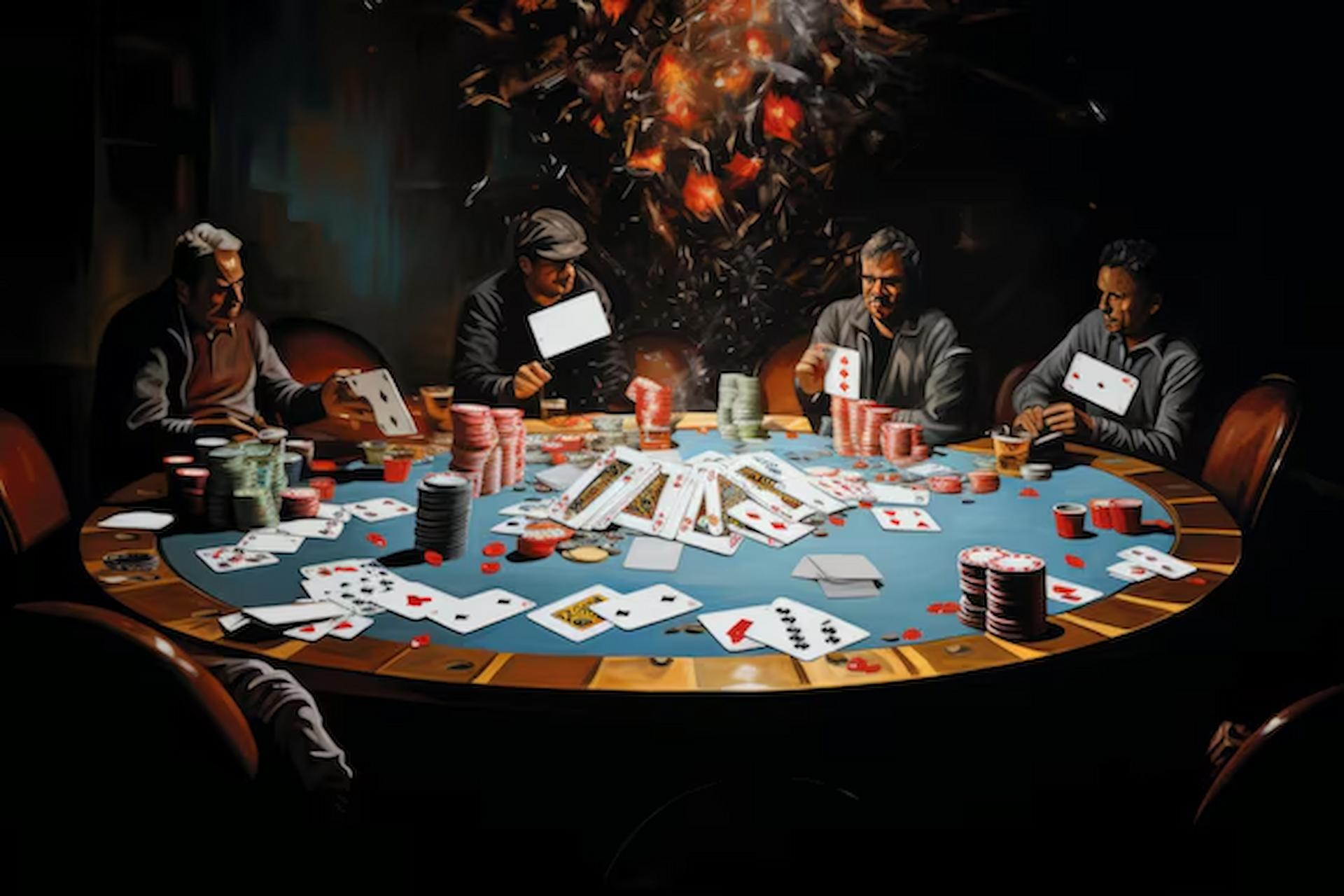Looking to elevate your poker skills and make every game a winning experience? Discover practical, expert-approved strategies to maximize both fun and wins at the table.
Poker is more than just a game of chance—it’s a game of strategy, skill, and psychology. Whether playing at a casino, online, or with friends, having a sound game plan can make a significant difference. By understanding and practicing poker strategies, you can increase your chances of winning while enjoying the thrill of the game. This guide will walk you through essential poker strategies that are easy to implement, effective, and designed to help you outsmart your opponents. Ready to deal yourself a winning hand? Let’s dive in!
1. The Basics of Poker Hands
Before diving into strategies, ensure you thoroughly understand the ranking of poker hands. This knowledge is the foundation for every move you make at the table.
Poker hands are ranked from the highest to the lowest:
Royal Flush: The unbeatable combination (A, K, Q, J, 10 of the same suit).
Straight Flush: Five cards in numerical order, all of the same suit.
Full House: Three of a kind plus a pair.
Knowing the strength of your hand helps you make confident decisions. For example, if you’re dealt pocket aces, you start with a firm hand. Conversely, a low pair might require cautious play. To maximize fun and wins, focus on building your understanding of hand probabilities and what beats what—it’s a game-changer.
2. Play Tight, Aggressive Poker
Playing a tight, aggressive style is one of the most effective poker strategies. This approach involves being selective about the hands you play and making bold moves when you do.
Why it Works:
Tight play minimizes risk by focusing on strong hands.
Aggression puts pressure on opponents, making them more likely to fold.
For example, focus on premium hands like pocket pairs or high cards instead of playing every hand. When you do play, raise instead of calling. A calculated, aggressive move shows confidence and forces your opponents to make mistakes. Studies suggest that players who combine tight and aggressive playstyles have a higher win rate over time.
3. Master the Art of Bluffing
Bluffing is a quintessential poker strategy, but it’s also an art. It can intimidate opponents and turn the tide in your favor when done correctly.
How to Bluff Effectively:
Observe Opponents: Look for players who fold easily under pressure.
Choose the Right Timing: Bluff when the stakes are lower or when you’re in a late position.
Tell a Convincing Story: Your actions should align with the story you’re trying to sell. For example, a significant raise on a scary board (e.g., three high-value cards) can make opponents think you have a strong hand.
Bluffing isn’t about lying but making your opponents believe something untrue. However, overusing this strategy can backfire, so practice restraint.
4. Position is Power: Play Smart from the Right Spot
Your position at the table matters as much in poker as your cards. Acting last (on the button) gives you a significant advantage.
Benefits of a Good Position:
Information Advantage: You get to see how opponents act before making your move.
Better Bluff Opportunities: Late positions allow for more calculated bluffs.
Control of the Pot: You can decide whether to build or keep the pot small.
For instance, if you’re on the button and everyone checks, you can bet aggressively to steal the pot. Conversely, playing from an early position requires more caution since you have less information about others’ hands.
5. Bankroll Management: Play Within Your Limits
Many players overlook bankroll management, but it’s crucial for long-term success in poker.
Tips for Managing Your Bankroll:
Set Limits: Decide in advance how much you’re willing to risk in a session.
Avoid Tilt: Don’t chase losses with reckless bets if you lose.
Stick to Your Stakes: Play games where the stakes match your bankroll.
For example, if you have a $500 bankroll, stick to games where the buy-in is no more than $10. It ensures you can weather losses without running out of money. Players with proper bankroll discipline are likelier to enjoy the game and avoid financial stress.
6. Read Your Opponents Like a Pro
Poker isn’t just about cards; it’s about people. Learning to read opponents can give you a significant edge.
How to Read Opponents:
Watch for Tells: Physical tells like shaking hands or facial expressions can indicate nervousness or confidence.
Analyze Betting Patterns: A sudden large bet might signal strength, while hesitation could mean a bluff.
Adapt to Player Types: Some players are aggressive, while others are cautious. Adjust your strategy accordingly.
For example, if an opponent consistently folds to raises, you can exploit this tendency by betting aggressively. Conversely, if they call every bet, avoid bluffing and focus on value betting.
Patience is Key: Play the Long Game
Poker is a marathon, not a sprint. The best players know that patience and discipline often lead to victory.
Why Patience Matters:
Wait for Strong Hands: Resist the urge to play every hand.
Avoid Emotional Decisions: Stay calm, even during losing streaks.
Focus on the Bigger Picture: Winning consistently over time is more important than a big win.
For example, folding weak hands and waiting for favorable opportunities reduces unnecessary losses. Poker experts say disciplined players win more frequently because they avoid high-risk situations.
Final Thoughts
Poker is a game of skill, strategy, and psychology. You can maximize both fun and wins by mastering these strategies—understanding hand rankings, playing tight and aggressively, bluffing effectively, leveraging position, managing your bankroll, reading opponents, and practicing patience. The key is staying disciplined, adaptable, and focused on learning. Whether you are a casual player or aiming to compete at higher stakes, these tips will enhance your gameplay and boost your confidence. Remember, poker is as much about enjoying the process as winning. So shuffle up, deal, and let the fun begin!

